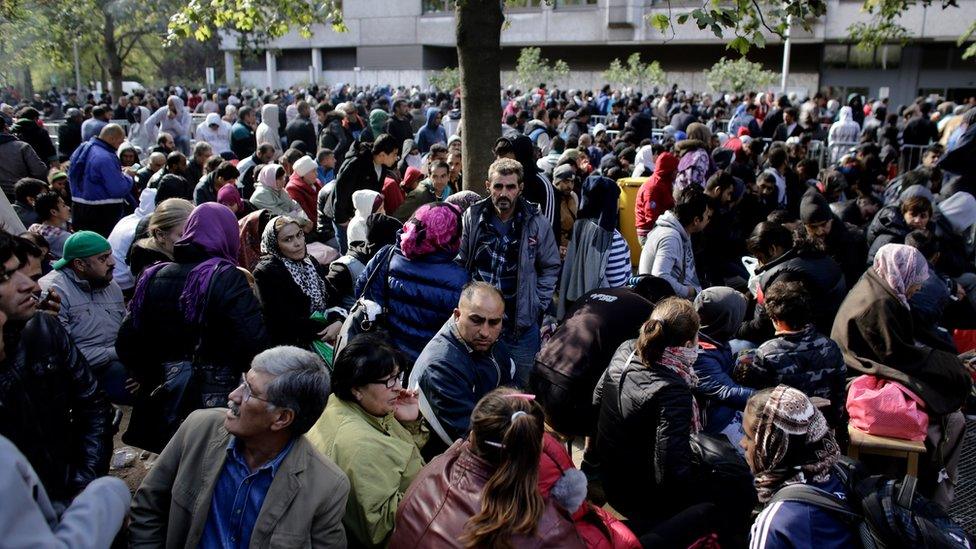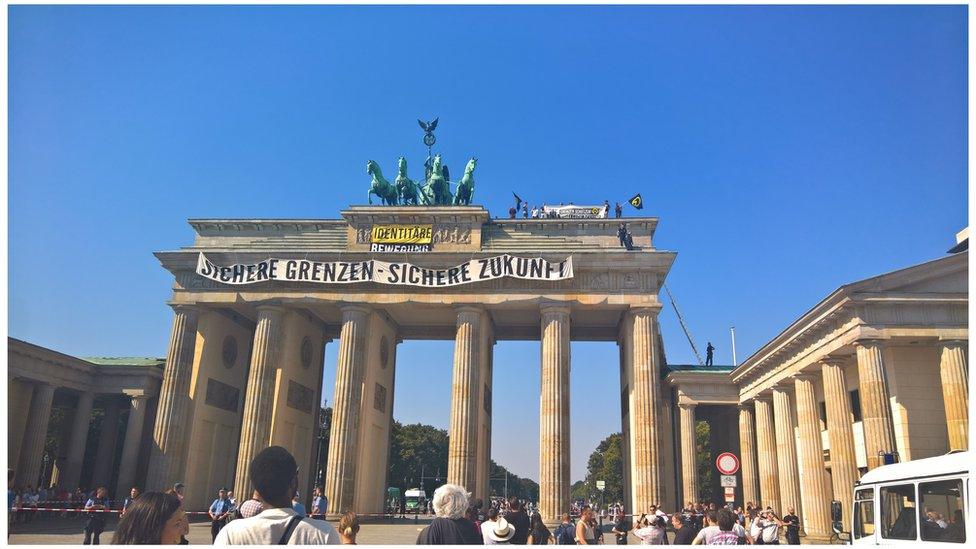Europe migrant crisis: Germany expects 'up to 300,000' this year
- Published

Hundreds of thousands have applied for asylum since the mass influx of migrants into Germany last year
Germany expects up to 300,000 migrants to arrive in the country this year, the head of its Federal Office for Migration and Refugees said.
Frank-Juergen Weise told the Bild am Sonntag, external paper that his office would struggle if more people came.
But he said he was confident the number of new arrivals would remain within the estimate.
More than one million migrants from the Middle East, Afghanistan and Africa arrived in Germany last year.
The German interior ministry says more than 390,000 people applied for asylum in the first six months of this year, but it is not clear how many of these may have arrived in the country in 2015.
Mr Weise said Germany would try to get as many of them on the job market as possible.
But he said the migrants' integration in German society "would take a long time and cost a lot".

Around 15 protesters spent nearly an hour on top of the Brandenburg Gate on Saturday, with banners calling for "secure borders, secure future"
A poll this month showed just over half of Germans thought Chancellor Angela Merkel's migrant policy was bad.
Support for anti-immigrant groups has risen.
On Saturday, members of a far-right movement scaled Berlin's Brandenburg Gate and unfurled a banner to protest against what they called the "Islamisation" of Germany.
A note on terminology: The BBC uses the term migrant to refer to all people on the move who have yet to complete the legal process of claiming asylum. This group includes people fleeing war-torn countries such as Syria, who are likely to be granted refugee status, as well as people who are seeking jobs and better lives, who governments are likely to rule are economic migrants.